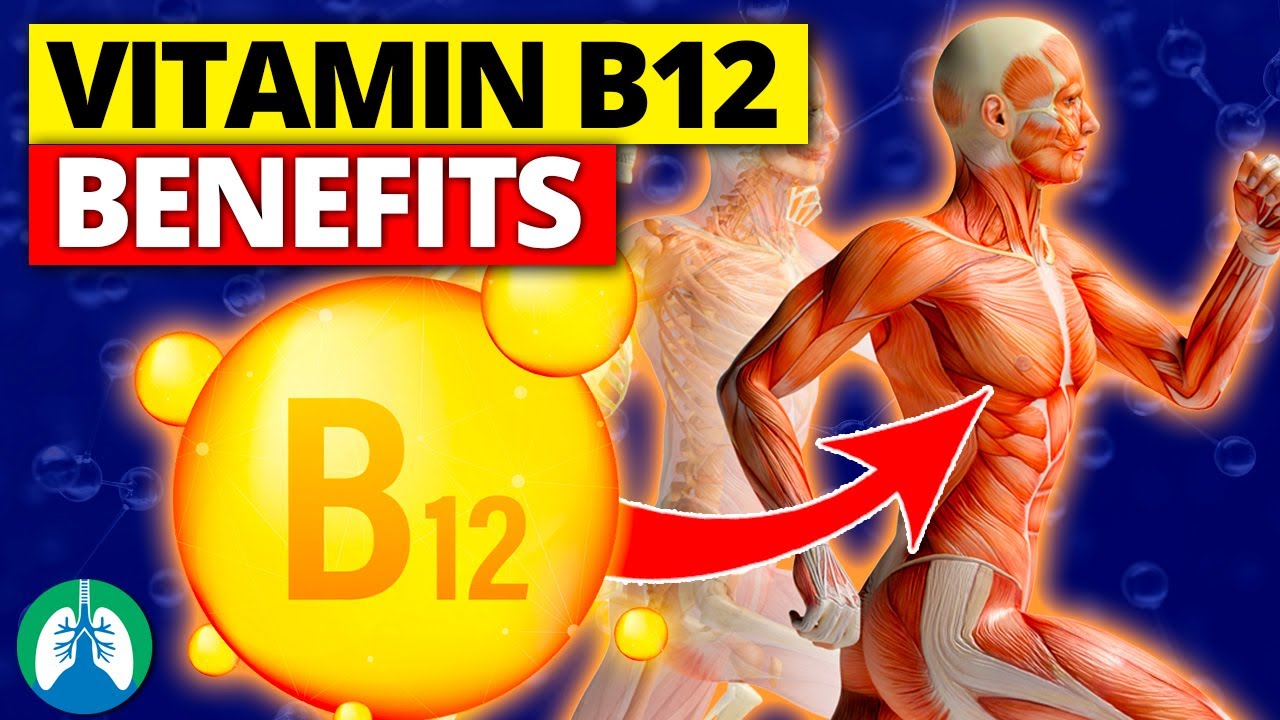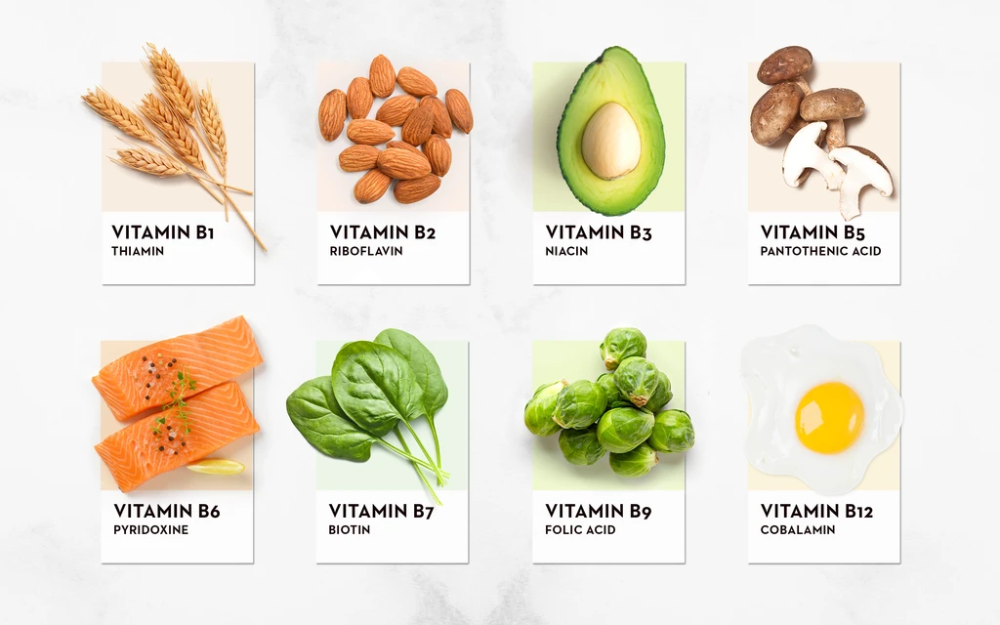Introduction: Vitamin B12, also known as cobalamin, is a water-soluble vitamin that plays a crucial role in numerous physiological processes in the body. It is essential for maintaining nerve function, synthesizing DNA, producing red blood cells, and supporting overall energy metabolism. Despite its importance, many people may not consume enough vitamin B12 through their diet, leading to potential deficiency and health complications. In this comprehensive guide, we will explore the various benefits of vitamin B12 and its role in promoting optimal health.
Understanding Vitamin B12
What is Vitamin B12? Vitamin B12 is a vital nutrient that belongs to the B-vitamin complex. It is unique among the B vitamins because it contains the mineral cobalt, which is why it is also referred to as cobalamin. Vitamin B12 is crucial for the formation of red blood cells, neurological function, DNA synthesis, and energy metabolism.
Sources of Vitamin B12 Vitamin B12 is primarily found in animal-derived foods, including
- Meat (such as beef, pork, and lamb)
- Poultry (such as chicken and turkey)
- Fish and shellfish (such as salmon, tuna, and clams)
- Dairy products (such as milk, cheese, and yogurt)
- Eggs For vegetarians and vegans, fortified foods such as plant-based milk alternatives, breakfast cereals, and nutritional yeast can be sources of vitamin B12.
Importance of Vitamin B12 Vitamin B12 plays several essential roles in the body, including
- Red blood cell formation: Vitamin B12 is necessary for the synthesis of hemoglobin, the protein in red blood cells that carries oxygen throughout the body.
- Neurological function: Vitamin B12 supports the maintenance of the myelin sheath, a protective covering around nerves, which is crucial for proper nerve function.
- DNA synthesis: Vitamin B12 is involved in the production of DNA, the genetic material found in all cells, which is essential for cell growth and repair.
- Energy metabolism: Vitamin B12 helps convert carbohydrates and fats into usable energy, supporting overall metabolic function.
Health Benefits of Vitamin B12
Improved Energy Levels Vitamin B12 plays a key role in energy metabolism by aiding in the conversion of carbohydrates and fats into energy. Adequate intake of vitamin B12 can help prevent fatigue and promote overall vitality.
Neurological Health Vitamin B12 is essential for maintaining proper neurological function. It helps protect nerve cells and supports the production of neurotransmitters, which are chemical messengers that transmit signals between nerve cells. Adequate vitamin B12 levels may help reduce the risk of neurological disorders such as neuropathy and cognitive decline.
Red Blood Cell Formation One of the primary functions of vitamin B12 is to support the formation of red blood cells. Without sufficient vitamin B12, the body cannot produce enough healthy red blood cells, leading to a condition known as megaloblastic anemia. Symptoms of anemia may include fatigue, weakness, and shortness of breath.
Heart Health Vitamin B12 plays a role in reducing levels of homocysteine, an amino acid that, when elevated, is associated with an increased risk of heart disease and stroke. By helping to lower homocysteine levels, vitamin B12 may contribute to better heart health.
Mood Regulation Vitamin B12 is involved in the synthesis of neurotransmitters such as serotonin and dopamine, which play key roles in mood regulation. Adequate vitamin B12 levels may help prevent mood disorders such as depression and anxiety and promote overall emotional well-being.
Healthy Skin, Hair, and Nails Vitamin B12 is essential for maintaining healthy skin, hair, and nails. It supports cell reproduction and renewal, which is important for skin health and wound healing. Adequate vitamin B12 intake may help prevent dry skin, hair loss, and brittle nails.
FAQs About Vitamin B12
Can Vitamin B12 Supplements Help with Weight Loss?
While vitamin B12 is involved in energy metabolism, there is limited evidence to suggest that vitamin B12 supplements alone promote weight loss. However, some weight loss clinics may offer vitamin B12 injections as part of a comprehensive weight loss program. It’s essential to consult with a healthcare professional before starting any new supplement regimen for weight loss.
Who is at Risk of Vitamin B12 Deficiency?
Certain populations are at an increased risk of vitamin B12 deficiency, including:
- Older adults: As people age, their ability to absorb vitamin B12 from food decreases.
- Vegetarians and vegans: Since vitamin B12 is primarily found in animal-derived foods, individuals following a strict vegetarian or vegan diet may not get enough vitamin B12 from their diet alone.
- Individuals with gastrointestinal disorders: Conditions such as pernicious anemia, celiac disease, Crohn’s disease, and certain medications can interfere with vitamin B12 absorption.
- Pregnant and breastfeeding women: These women have increased vitamin B12 requirements to support fetal development and breastfeeding.
What are the Symptoms of Vitamin B12 Deficiency?
Symptoms of vitamin B12 deficiency can vary but may include:
- Fatigue and weakness
- Pale or jaundiced skin
- Shortness of breath
- Dizziness or lightheadedness
- Tingling or numbness in the hands and feet
- Memory problems
- Mood changes, such as depression or irritability
Can Vitamin B12 Supplements Interact with Medications?
Vitamin B12 supplements are generally considered safe for most people when taken as directed. However, they may interact with certain medications, including:
- Proton pump inhibitors (PPIs) and H2 receptor antagonists: These medications used to treat acid reflux can reduce stomach acid, which may impair vitamin B12 absorption.
- Metformin: This medication used to treat type 2 diabetes may reduce vitamin B12 levels over time.
- Antibiotics: Some antibiotics may interfere with vitamin B12 absorption when taken over a long period. It’s essential to talk to a healthcare professional before taking vitamin B12 supplements, especially if you are taking medications.
Are There Any Risks Associated with High Vitamin B12 Levels?
Vitamin B12 is water-soluble, meaning that excess amounts are usually excreted in the urine and not stored in the body. Therefore, vitamin B12 toxicity is rare, even at high doses. However, excessive intake of vitamin B12 supplements may cause mild side effects such as diarrhea or itching. It’s important to follow recommended dosage guidelines and consult with a healthcare professional before taking high-dose supplements.
Can Vitamin B12 Supplements Improve Memory and Cognitive Function?
While vitamin B12 is essential for neurological function, there is limited evidence to suggest that vitamin B12 supplements can improve memory or cognitive function in healthy individuals. However, correcting a vitamin B12 deficiency in individuals with cognitive impairment due to low B12 levels may improve symptoms. It’s essential to consult with a healthcare professional for proper evaluation and treatment of cognitive issues.
Are Vitamin B12 Injections More Effective Than Oral Supplements?
For individuals with pernicious anemia or other conditions that impair vitamin B12 absorption, vitamin B12 injections may be necessary to ensure adequate vitamin B12 levels. Injections deliver vitamin B12 directly.
- Nasolabial Fold Fillers – Marionette Lines Near Shepperton, Surrey - May 31, 2025
- What Is The Downtime For A Liquid Facelift? - May 31, 2025
- Vista Edge Vape Battery Vs Standard 510 Batteries: Performance Tested - May 31, 2025



